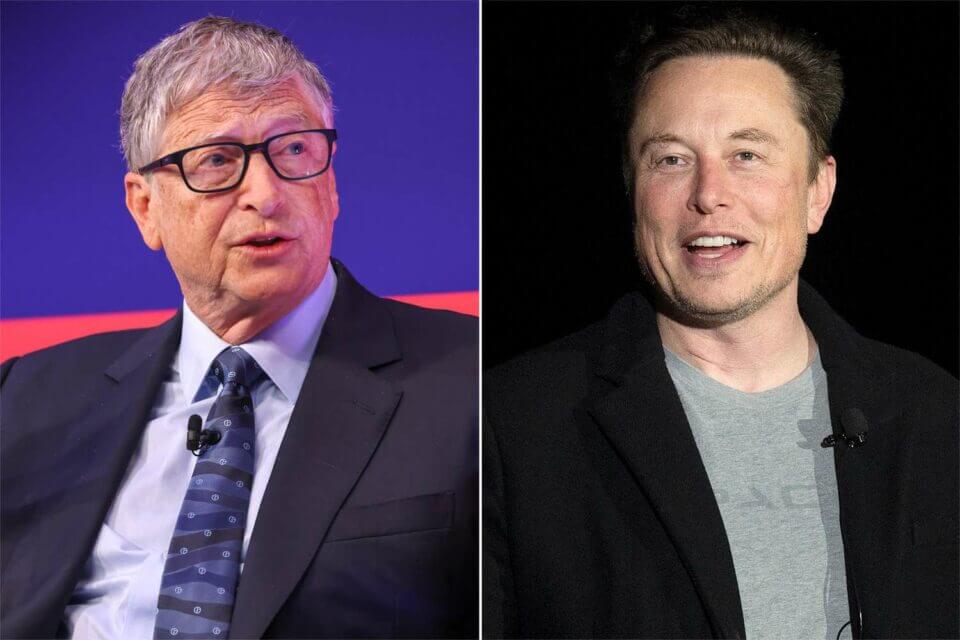
“Musk still seems to have his wits about him when managing his other companies, when speaking on longform podcasts, or when staying conveniently on message with regard to China. So what is it about X that is specifically causing Musk to lose his composure and his business sense?”
The company formerly known as Twitter has not been good for Elon Musk. It has been a terrible investment, a distraction from his other companies, and has caused significant harm to his reputation. Following the recent incident where he told advertisers who left the platform to “Go f— yourself,” it seems obvious to many people that Musk is legitimately losing his mind. “He’s clearly turning into Howard Hughes,” Kara Swisher declared.
There are certainly similarities between Musk and Hughes, the “crazy aviators” as Forbes dubbed them in 2019. But this comparison seems premature. While Musk might be showing signs of mental instability, so far his craziness is contained primarily to issues involving X. Musk still seems to have his wits about him when managing his other companies, when speaking on longform podcasts, or when staying conveniently on message with regard to China. So what is it about X that is specifically causing Musk to lose his composure and his business sense?
If there is a rational answer to this question, it likely has something to do with Musk’s novel perspective on philanthropy. Musk is not known for his philanthropy. Among billionaires, he ranks among the lowest in philanthropic giving. He defends this record by arguing that his companies are a form of philanthropy because they all exist to serve humanity.
At the 2022 Met Gala, a reporter from Entertainment Tonight asked Musk why he spent $44 billion buying Twitter when he could have used that money for charity or philanthropy. Musk answered: “Well, I do do a lot of things philanthropically. My companies are intended to do good for the future of humanity…With Tesla trying to accelerate the advent of sustainable transport and energy, and SpaceX is providing Internet to the least served people around the world.”
How does Twitter fit in? While it might seem like a frivolous platform, to Musk, Twitter is foundational to democracy. “Free speech is the bedrock of a functioning democracy,” says Musk, “and Twitter is the digital town square where matters vital to the future of humanity are debated.” By steering the ship at Twitter, Musk—at least in his mind—is literally saving democracy.
Taking Musk at his word helps to explain his bizarre behavior. If Musk just spent $44 billion on a philanthropic project to save democracy, then it absolutely makes sense to tell those who stand in his path to “go f—” themselves. This is not a case of advertisers being vindictive toward the richest man in the world. It is instead a case of evil corporations working to thwart democracy!
It is easy to become cynical about philanthropy. Even under optimal circumstances, philanthropic efforts often backfire. A classic example is “donation dumping,” where well-intentioned donors of food or clothing give too much, leading to a waste management problem. In Australia, charities spend about $18 million a year dealing with donation dumping that occurs over the holidays.
Even Bill Gates, widely known for his effective philanthropy through the Gates Foundation, has arguably caused significant harm. For example, critics of Gates claim that his foundation focuses on specific infectious diseases at the expense of helping to address major causes of death such as obesity, cancer, and diabetes. In terms of infectious diseases, critics argue that the Gates Foundation focuses too heavily on vaccines and shuts down debate about other possible treatments. And many global health experts are critical of Gates’s love of intellectual property (IP) laws, even in cases where IP protections make it challenging for poor countries to develop generic versions of drugs.
“At the core,” argues Tim Schwab in his new book The Gates Problem, “[Bill Gates] is not a selfless philanthropist but a power broker, a clever engineer who has innovated a way to turn extreme wealth into immense political influence—and who has made us believe we should applaud his acquisition of power, not challenge it.” According to The Guardian, this critique of Gates is true for billionaire philanthropists broadly: “Philanthropy is always an expression of power.”
Consider this in terms of Musk’s recent behavior. As he becomes increasingly unhinged in his management of X, it is possible he is not turning into Hughes but, rather, that he is turning into Gates. Musk is using X to champion free speech—but only so far as it is his version of free speech. In other words, X gives Musk a similar kind of “immense political influence” that Gates wields through the Gates Foundation.
And it is not just X that gives Musk this influence over the world. He also has achieved incredible power through Tesla, SpaceX, and Starlink. Together, his companies have inspired think pieces on the topic “whether Musk has too much power” in virtually every major publication, from CNN to The New Yorker to The Washington Post. The difference between X and his other “philanthropic” companies is that X is losing money and that the advertisers have a role to play in whether X sinks or swims. This is a threat to Musk’s expression of power vis-à-vis furthering his vision of free speech and democracy.
Of course, Musk would take issue with the framing that philanthropy is about power. In his view, “philanthropy is a love of humanity.” As such, his companies, as philanthropic ventures, are an expression of a love of humanity. To this point, love, just like power, has been known to drive people crazy.
Peter Clarke is a freelance journalist in San Francisco. He can be found on Twitter @HeyPeterClarke











